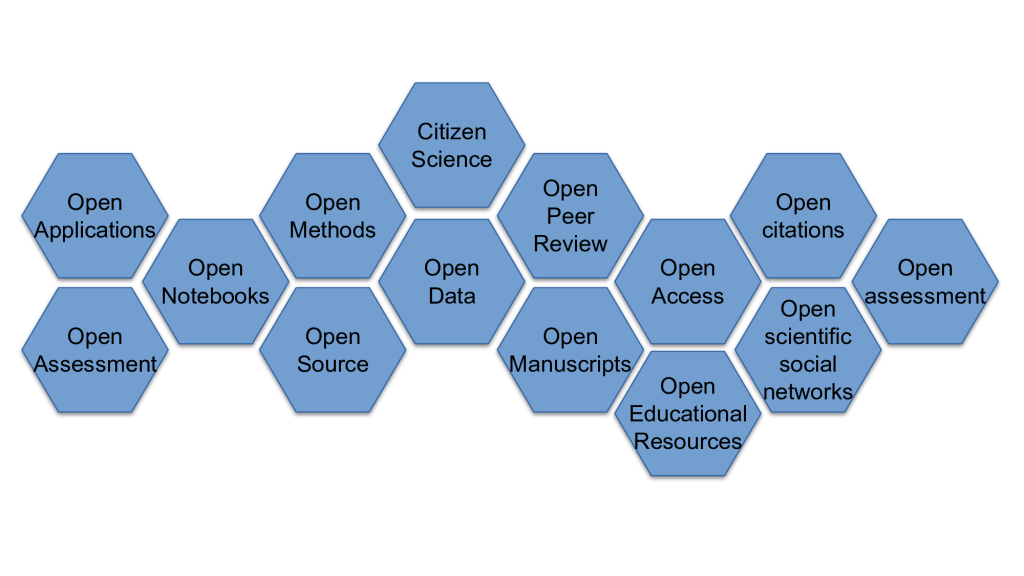Recently, I have been engaged in an internal discussion at the University of Oslo about our institutional web pages. This has led me to realize that a university’s web pages are yet another part of what I like to think of as an Open Research “puzzle”:

Cutting down on web pages
The discussion started when our university’s communication department announced that they wanted to reduce the number of web pages. One way of doing that is by unpublishing a lot of pages. So it was decided that all event pages older than three years should be removed. That may seem like a logical decision to some. After all, pages announcing activities that happened several years ago may be less relevant today. There is also evidence that these pages are not read very often.
However, even though web pages have few visitors, that does not mean they are of little value. In a letter to the editor of our university newspaper, my RITMO colleague Anne Danielsen and I wrote about our experience of starting and running a centre of excellence. This is an enormous opportunity but also a big challenge.
Many people are interested in hearing about how we run RITMO, but also how we came into a position of obtaining funding for such a centre in the first place. The “answer” is, in many ways, easily found on our web pages. There, people can find information about all our activities, including seminars, workshops, guest lectures, disputations, publications, and more. Unfortunately, all this information is what the communication department wants to remove.
I agree that having many pages require maintenance. Our institutional web pages may also not be the best archive. However, given that we don’t have any other archive and the information is already there, I would leave it as is rather than unpublish it. Unpublishing anything from the web means deleting it in practice.
Research dissemination versus researcher communication
What has become clear throughout our internal discussions at UiO is that there needs to be more understanding of the difference between research dissemination and researcher communication. The communication department primarily focuses on research dissemination, and they write excellent feature stories and focus on making content for the large student body and the general public. These are undoubtedly the big groups of visitors to our university web pages, and I am very much in support of ensuring we reach them well.
However, we should not forget another critical target group: researchers, our peers. The researchers at UiO communicate with researchers at other institutions. This researcher communication is in a different form and with different content than what the general public is concerned about. The general public is probably not particularly interested in the web pages of the NordicSMC Winter School in 2019, a MotionComposer workshop in 2015, or a McGill-UiO workshop in 2006, to pick some random examples. Nevertheless, these pages are useful for our international research community and us.
It would not be a significant loss to science if any of these event pages disappeared. However, together with the hundreds of other event pages we have made over the years, these pages are the only public documentation of our research activities. They tell the story about the research topics we have been interested in, the people that have studied and worked with us, and the researchers we have invited or visited.
I often use our event pages to remember when and where things happened, and I also find it interesting to look at similar event pages at other universities. When I have been involved in evaluation processes, such as those organized by a national research funder, the event pages of an institution are a good indicator of what a research group or department has been doing. In that sense, such pages matter a lot, and they may be why someone gets funding and others do not.
Archiving the not-so-important information
There is much focus on archiving publications, source code, and data these days. Less–if any–attention is given to the archival of other types of research-related information. We spend much effort keeping our event pages nice and informative. That would feel like a waste of time if we knew the pages would be deleted in a year or two. Archiving such an event page is complex, and we do not have an institutional or national archive. We could, perhaps, dump info into OSF or Zenodo, but how would that work?
What is clear is that we need more focus strategies for archiving research-related activities.
